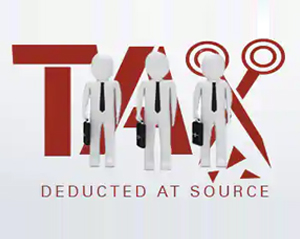Tax* is an amount that you are required to pay, basis your income and consumption of goods and services. This amount paid by you is used by the government to support critical aspects of a nation's development, such as infrastructure, healthcare, education and defence.
A basic understanding of tax* planning and the taxation system is important for effective financial management and being a responsible citizen.
Meaning and Types of Taxes
There are two main categories of taxes, which are further subdivided into other categories.
Basic Concept of Direct Tax
Direct taxes are applied directly to individuals or organisations. They are generally applied directly to the taxpayer's income or wealth.
Types of Direct Tax:
Direct tax can be categorised into the following types:
Income Tax
Income tax is charged on your earnings, such as salary or business income. It is collected by the Central Government every year and used for various public developmental projects across the country.
Income tax is charged as per income slabs decided by the Government of India and provisions under The Income Tax Act, 1961. India follows a progressive income tax system, which means that high-income groups pay a higher income tax than the lower ones.
Capital Gains Tax
Capital gains tax is charged on earnings from the sale of investments, such as mutual funds, stocks, real estate and more. Capital gains can be divided into two types – Long-Term Capital Gains (LTCG) and Short-Term Capital Gains (STCG). The rules for charging capital gains tax differ basis the type of investment being sold and the duration for which one was holding the investment.
Perquisite Tax
Perquisites are perks provided to employees by their employers in addition to their salary. Some of these may include company-sponsored accommodation or vehicle, free meals, fuel reimbursement and more. Perquisites may or may not be taxable depending on prevailing tax laws.
Corporate Tax
Corporate tax is the tax companies pay on their profits or earnings. This applies to both domestic companies and foreign companies operating in India. It is imposed on the income they make within the country. So, whenever a company makes money, it pays a portion of that as corporate tax to the government.
Basic Concept of Indirect Tax
Indirect taxes are not directly applied to individuals or businesses. Instead, they are passed on to them through the prices of goods and services. Taxpayers pay these taxes when they make a purchase. Indirect taxes are divided into categories, such as customs duty, central excise duty, service tax, sales tax, Value Added Tax (VAT), Goods and Services Tax (GST) and more.
Types of Indirect Tax:
Just like direct tax, indirect tax is also further divided into different categories:
Goods and Services Tax (GST)
GST is charged when you purchase various goods and services. It is added to the price of the product and paid by the buyer to the seller. The seller pays the GST collected to the Government of India. The type of GST applicable depends on the transaction on which it is being charged.
- Integrated Goods and Services Tax (IGST): IGST is charged when the buyer and seller are in different states/union territories
- State Goods and Services Tax (SGST) and Central Goods and Services Tax (CGST): SGST and CGST are charged when the buyer and seller are in the same state
- Union Territory Goods and Services Tax (UTGST) and Central Goods and Services Tax (CGST): UTGST and CGST are charged when the buyer and seller are in the same union territory
Excise Duty
Excise duty, also known as excise tax, is charged on goods that are produced within the country. It is collected by the government from the manufacturer.
Custom Duty
Custom duty is a tax imposed on goods imported from another country. It is levied in the case of international trade.
Stamp Duty
Stamp duty is a tax imposed by the state government on the sale or transfer of property ownership. It is imposed under Section 3 of The Indian Stamp Act, 1899.
Entertainment Tax
Entertainment tax is levied by the government on various entertainment activities such as movie tickets, large-scale commercial shows, music festivals and private festival celebrations.
How does taxation work?
In India, tax is levied on the amount of income earned or basis the price of the product or service being taxed. India follows a progressive tax system for income tax. This means that the rate of tax levied increases as your income band rises. When it comes to capital gains, the tax you pay depends on how long you have held onto the investment and the type of investment you have made.
Additionally, different taxes apply to different products and services, so the type of tax can vary based on what you are dealing with.
Benefits of Taxes
Below are some key benefits of taxes:
Controlling inflation:
When the government increases tax rates, individuals and businesses have to use more of their income towards paying taxes. This leaves them with a lesser amount in hand, thereby making them spend less. The lower demand for goods and services brings down prices and helps control inflation.Addresses income inequalities:
Progressive tax systems, where higher-income individuals are taxed at higher rates, enable the government to collect more tax revenue from those who can afford to pay more. This helps bridge the income gap and improves the well-being of the overall society.Development of the nation:
Taxes provide a steady income for the government. Taxes fund essential public services such as healthcare, education, sanitation, transportation and utilities. They are also used for infrastructure development, public services, national defence and administrative costs.Managing the Economy:
The concept of income tax is essential for a nation. Taxes bring revenue into the economy. It stimulates economic growth for the country and helps it progress in multiple domains, right from infrastructure to education, healthcare, economic reforms and more.Social Welfare:
The taxes collected by the government can be used for various social welfare programme. These funds may go toward social security benefits for senior citizens, poverty alleviation programme, subsidies and other initiatives to improve the well-being of citizens.
Why should you pay your taxes on time?
Paying taxes on time is a legal requirement in India. Delays in tax payments can result in imposition of penalties and may also be considered tax evasion. This is a punishable offence and can lead to heavy fines and legal issues. Therefore, it is crucial to ensure timely payments to avoid these adverse outcomes.
Adhering to tax deadlines not only helps maintain compliance with the law but also contributes to the smooth functioning of government operations. Fulfilling your tax obligations helps you support the collective welfare of the country as well.
COMP/DOC/May/2024/305/6246
People like you also read ...






